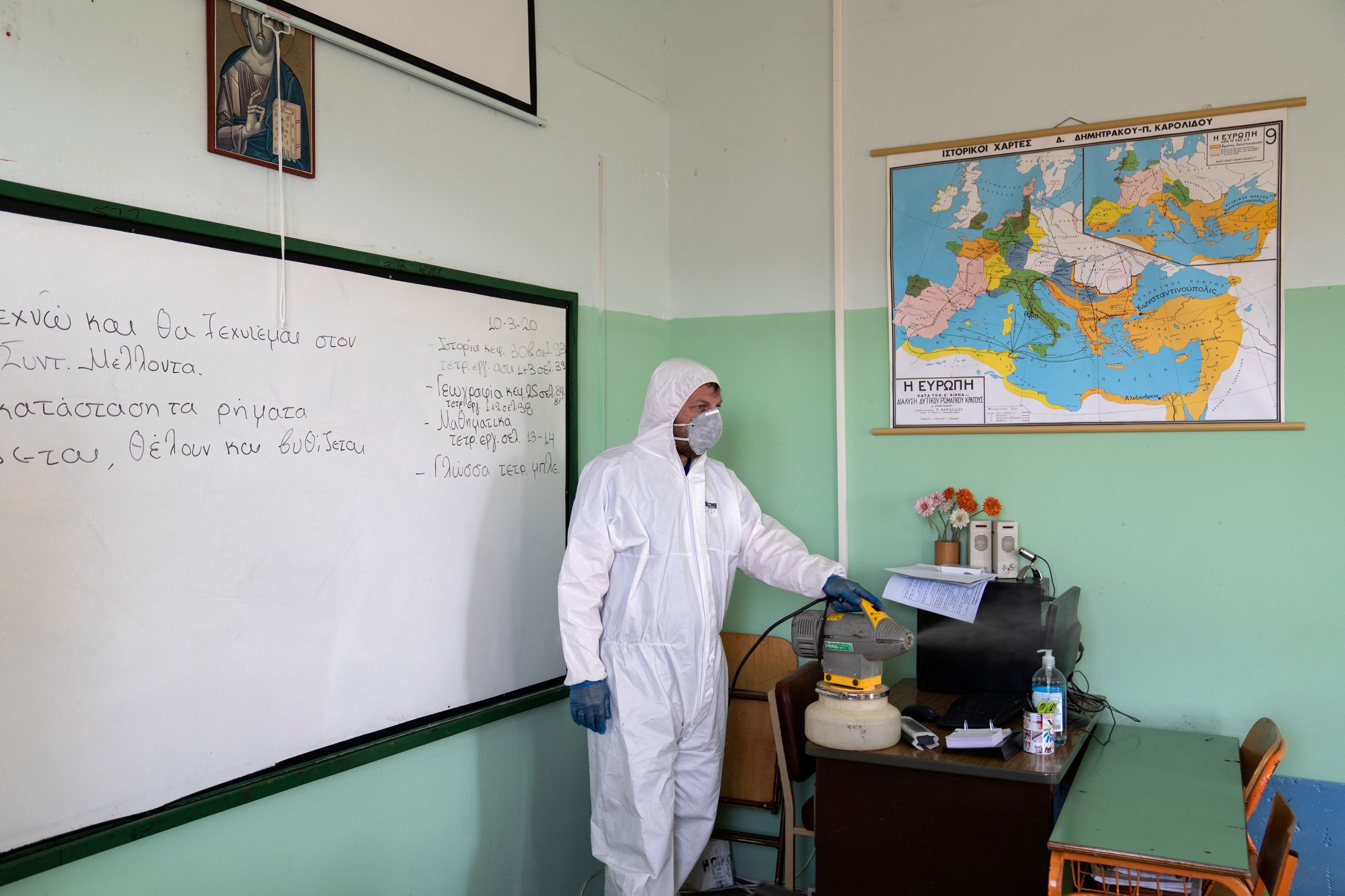This past week a 3.5-year-old child died in Thessaloniki due to complications linked to its infection with parvovirus B19, stemming from an outbreak at its school.
The child was one of 11 students, between the ages of 3-5 years old, which caught parvovirus B19 at a school, prompting the temporary closure of the school for two weeks by the National Public Health Organization of Greece (EODY).
According to reports, the child developed acute myocarditis, which is complication linked to parvovirus B19.
The school has been closed for two weeks to enable authorities to investigate the source of the virus in the school and to conduct a deep cleaning of the premises.
Parvovirus B19 is part of a family of viruses than can cause a range of symptoms, and includes the well-known Fifth’s disease, which causes flu-like symptoms and leaves a hallmark “slapped cheek” rash, according to the CDC.
Fifth’s disease most often occurs in young children and outbreaks are more common in late winter, spring and early summer.
Parvoviruses most often infect animals like cats and dogs, but people cannot catch parvovirus from their animals, explains the CDC.






